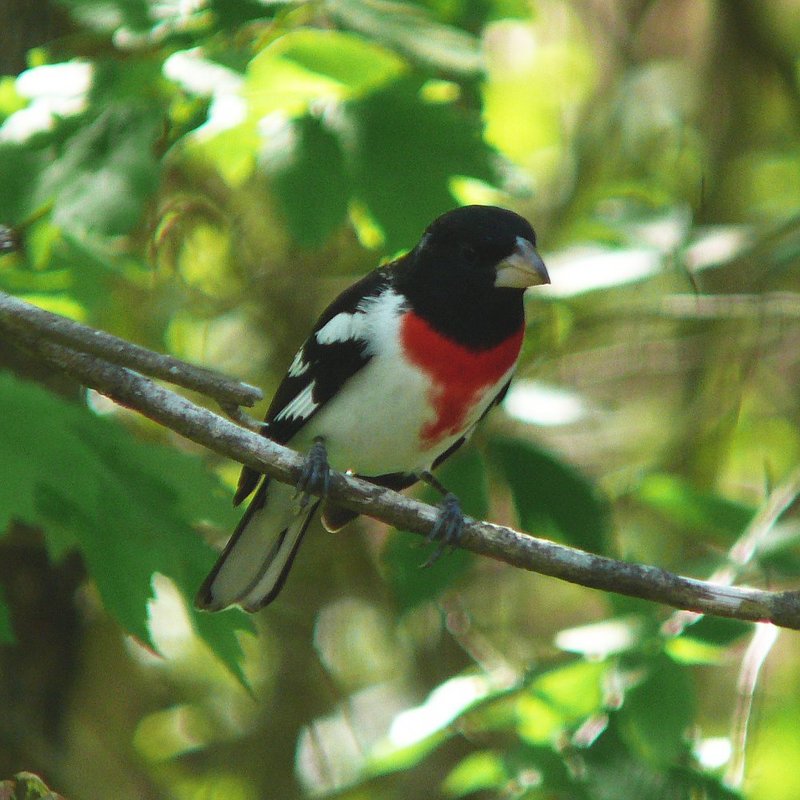|
| Query: Pheucticus melanocephalus | Result: 15th of 18 | |
Rose-breasted Grosbeak (Pheucticus ludovicianus) - Wiki
| Subject: | Rose-breasted Grosbeak (Pheucticus ludovicianus) - Wiki
| |

| Resolution: 1000x1000
File Size: 208092 Bytes
Date: 2007:04:30 09:14:57
Camera: DMC-FZ50 (Panasonic)
F number: f/2.8
Exposure: 10/2000 sec
Focal Length: 888/10
Upload Date: 2007:12:27 15:45:11
|
Rose-breasted Grosbeak
From Wikipedia, the free encyclopedia
Order: Passeriformes
Family: Cardinalidae
[Photo] Rose-breasted Grosbeak (Pheucticus ludovicianus) adult male. Location: Johnston County, North Carolina, USA. Source: www.kenthomas.us (personal website of photographer). Date: 30 April 2007. Author Ken Thomas (http://commons.wikimedia.org/wiki/User:Ken_Thomas). Released to the public domain by the author.
The Rose-breasted Grosbeak, Pheucticus ludovicianus, is a large seed-eating bird in the cardinal family.
The adult is 19 cm long and weighs 47 g. It has dark upperparts, white underparts and a large pale bill. The adult male has a black head, wings and upperparts and a bright rose-red patch on its breast; the wings have white patches and rose red linings. The adult female has dark grey upperparts, a white stripe over the eye, streaked underparts and yellowish wing linings.
The song resembles a more refined version of the American Robin's. The call is a sharp pink.
The Rose-breasted Grosbeak's breeding habitat is open deciduous woods across most of Canada and the eastern United States. Northern birds migrate to southern Mexico south through Central America to Peru and Venezuela in winter. The species occurs as very rare vagrants to western Europe.
Misguided fire prevention policies have created habitat on the Great Plains, thereby allowing the Rose-breasted Grosbeak to extend its range westwards. Increased hybridization with the Black-headed Grosbeak subspecies Pheucticus melanocephalus papago has been recorded as a consequence.
The Rose-breasted Grosbeak forages in shrubs or trees for insects, seeds and berries, also catching insects in flight. In the winter quarters, they can be attracted into parks, gardens, and possibly even to bird feeders by fruit like Trophis racemosa. It builds a twig nest in a tree or large shrub.
More Photos at http://commons.wikimedia.org/wiki/Pheucticus_ludovicianus
http://en.wikipedia.org/wiki/Rose-breasted_Grosbeak
| The text in this page is based on the copyrighted Wikipedia article shown in above URL. It is used under the GNU Free Documentation License. You may redistribute it, verbatim or modified, providing that you comply with the terms of the GFDL. |
|
Comments |
|---|
| | goedkope cialis |
|
| GXAekT pwbrkfwy xixoqbte vdsoaqon |

|

|

|
Pheucticus melanocephalus
15/18 |

|
 |
^o^
Animal Pictures Archive for smart phones
^o^
|
|
|

